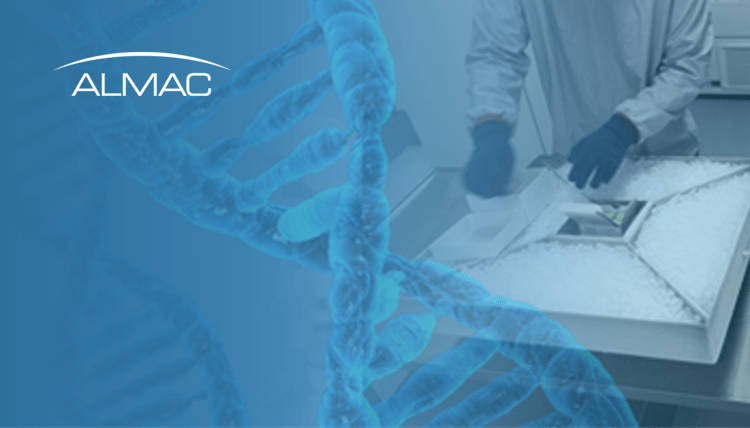Exploring Ultra-Low Temperature Packaging Solutions for Gene Therapies
With the industry moving to more personalized medicine and delivering genetic material to patients to treat conditions resulting from genetic mutations, we speak to Sean Canavan, Operations Manager at Almac’s Gene Therapy Centre of Excellence facility in Dundalk, on the impact this is having on the packing, labelling, and distribution of the specialized drug products.
Q: What are the ultimate differences in the packaging process for gene-therapy products compared to more conventional dosage forms?
The ultimate difference for the packaging of gene-therapy products is concerning the handling of the product and their special temperature requirements. Due to the genetic materials, these drug products often need to be stored at ultra-low temperatures, ranging anywhere from -20 to -80°C and typically only have a very short window of time out of that condition, sometimes none at all. The time spent out of temperature can have a major impact on the efficacy of the gene therapy and as such, maintaining the temperature, must be kept in mind during the labelling and packaging process.
Q: How do you determine time out of temperature allowances?
In general, this is a challenge faced by our clients. It’s difficult to run trials to establish allowable time out of frozen conditions due to the low volume, orphan designation, and extreme expense of the product, our clients often have limited data when they come to us to commercially launch and pack their gene therapy. Working with our client partner, reviewing whatever data they have available, we then devise a bespoke commercial packaging process to reduce the risk of temperature excursions as much as possible and ensure that all goes smoothly once a solution has been determined.
Q: What are the key considerations for developing a commercial packaging process for a gene therapy?
We have found that every client’s gene-therapy product has unique requirements, which leads to very distinct packaging processes. So, we work collaboratively with our clients to define a robust and commercially scalable process that meets their needs, there is not a one-size-fits-all answer.
When working with our clients to determine a bespoke process, we will consider:
- Temperature requirements (-20⁰C, -40⁰C, -80⁰C)
- Allowable time out of condition (ambient/dry ice packaging)
- Conditioning time requirements
- Material specifications for labels & cartons
- Label design
- Overprinting of labels & cartons
- Final pack-out configuration ( ancillary components)
- Level of serialization aggregation required
Q: Is there any commonality amongst gene therapy client needs?
To be honest, not really. We work with a variety of gene-therapy products, all with very unique processes, though most are centered on using a dry ice solution and to help prevent temperature excursions and limit the time out of condition, we do pre-print as much as possible in terms of labels and cartons and condition packaging components.
I would say, one common requirement, is the need for responsiveness and the flexibility to be able to label, pack and QP release the drug product as soon as an order is received. Quite often we receive orders on one day and the gene therapy is ready for dispatch the next day or sometimes on the same day depending upon the time of order receipt. This responsive just-in-time (JIT) processing ensures the lifesaving drug product is with the patient as soon as possible.
Q: Can you explain a bit more about the just-in-time processes at Almac?
With gene therapies typically being patient specific, implementing a JIT process allows the product to be labelled and packed upon order receipt in line with that particular patients dosing requirements.
For example, we have a gene-therapy product where treatment is weight-based, and the weight of the patient translates into how many vials are needed to be packed. The product is for the EU market, so the product needs to be placed in country-specific packaging with the patient’s specific information on the pack and distributed accordingly. Between the varying weights and country information, at last count, this gene therapy had over 420 SKUs for one product.
For this particular product our client has a dedicated GMP footprint within our facility with reserved frozen storage resources, so that when an order is received which could be as niche as one vial per batch, our specialist team picks the product from the client dedicated freezers, labels and packs over dry ice, the product is QP released in real time and ready for distribution direct to the patient within 24-48 hours.
I find this development of advanced medicine so interesting. To think not only how there has been a major shift in our packaging processes to be able to provide such a bespoke rapid solution, but that a drug product which is so specific to individual patients often is a cure for their rare disease.
Sean Canavan, Operations Manager, Almac Pharma Services Dundalk
 |
|
Sean Canavan |
Sean joined the Almac Group in June 2020 as Operations Manager at our European Campus in Dundalk. He is responsible for the direct management of the Packaging and Logistics Operations at Almac’s Gene Therapy Centre of Excellence Facility.
With over 20 years’ experience in the Pharmaceutical industry, Sean has been responsible in managing departments that have delivered multiple products in global markets including Europe, US, Canada, Japan, Australia, New Zealand, Brazil and Africa.
Sean has extensive experience within the packaging industry and has worked very closely with some of the world’s biggest pharmaceutical equipment manufacturers over the years. He has also worked with some of Europe’s leading packaging suppliers to develop customer specific packaging solutions, helping launch client products on time and ensuring first to market.
Prior to joining Almac, Sean worked for one of the world’s largest veterinary companies where he was responsible for the management of all packaging operations across several sites working with 300 products marketed in 110 different countries.
Learn more and attend our Gene-Therapy Product Launch Webinar



